Definitive Comparison of Condensing vs Non Condensing Tankless Water Heaters
When it comes to replacing a water heater, Rancho Cucamonga homeowners are often faced with the choice between condensing and non-condensing tankless models. It's crucial to understand the distinctions between these two options to make an informed decision. This article provides an in-depth comparison of condensing and non-condensing tankless water heaters, equipping readers with the knowledge they need to select the best option for their specific needs and living environment.

What is a tankless water heater and how does it work?
A tankless water heater is a technologically advanced alternative to traditional tank-based water heaters. It operates by heating the water directly as it passes through the unit, without the need for a storage tank. This innovative system provides hot water on demand, eliminating the inconvenience of waiting for a tank to fill and heat up. As cold water flows into the tankless water heater, it passes through a heating element or a gas burner that rapidly heats it up. The hot water is then delivered to your faucets or showerheads with almost no delay. This instant heating process ensures a constant supply of hot water, making tankless water heaters highly efficient and space-saving. If you're looking for a reliable and energy-saving water heater replacement, a tankless water heater could be the perfect solution for your needs.

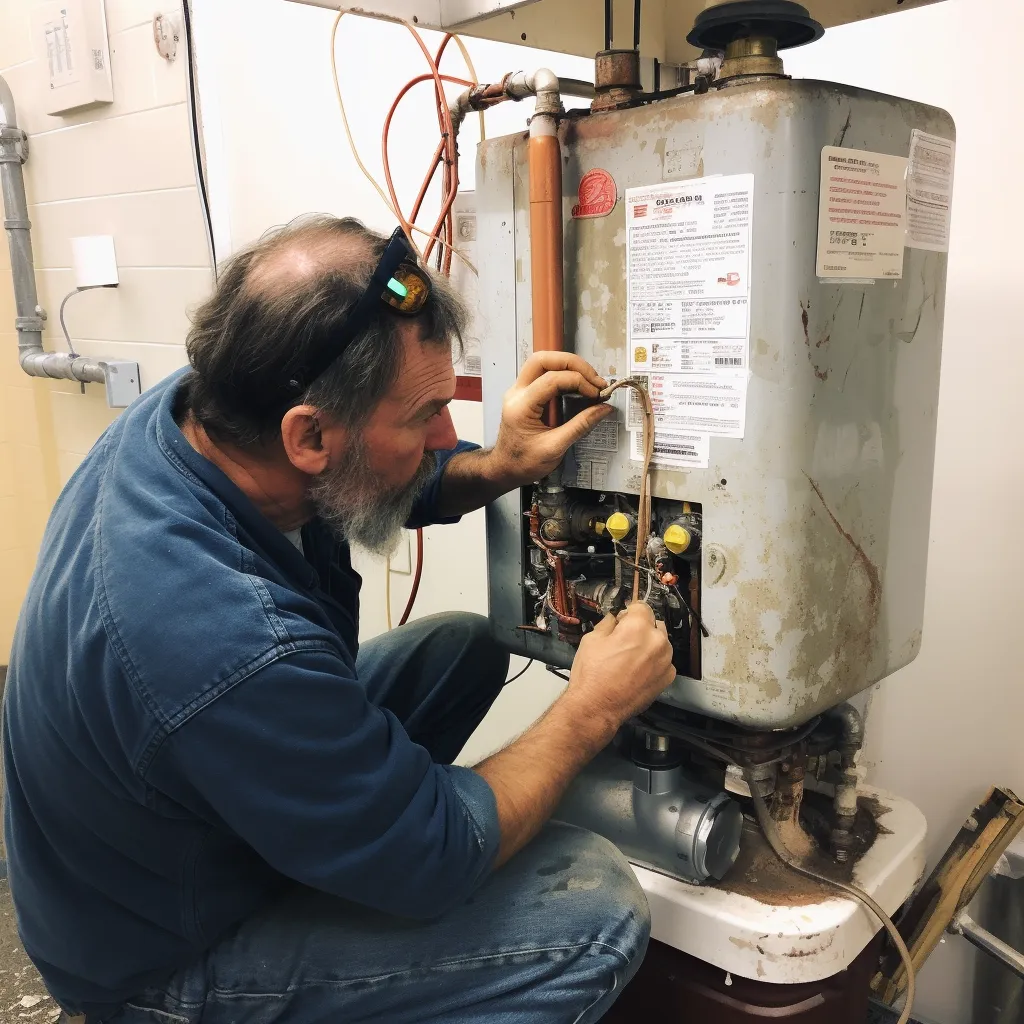
What is a condensing tankless water heater?
A condensing tankless water heater is a highly efficient and energy-saving option for water heating in residential and commercial settings. Unlike traditional tank-based water heaters, a condensing tankless water heater does not store hot water. Instead, it heats water on-demand as it flows through the unit. The key difference is in their heat exchangers. A condensing tankless water heater utilizes a secondary heat exchanger to extract additional heat from the exhaust gases, which would typically be wasted in a non-condensing model. This allows for a higher heat transfer efficiency, resulting in greater energy savings. By condensing the exhaust gases, a condensing tankless water heater can achieve an impressive energy efficiency rating. This leads to reduced energy consumption, lower utility bills, and a smaller carbon footprint compared to traditional water heaters.
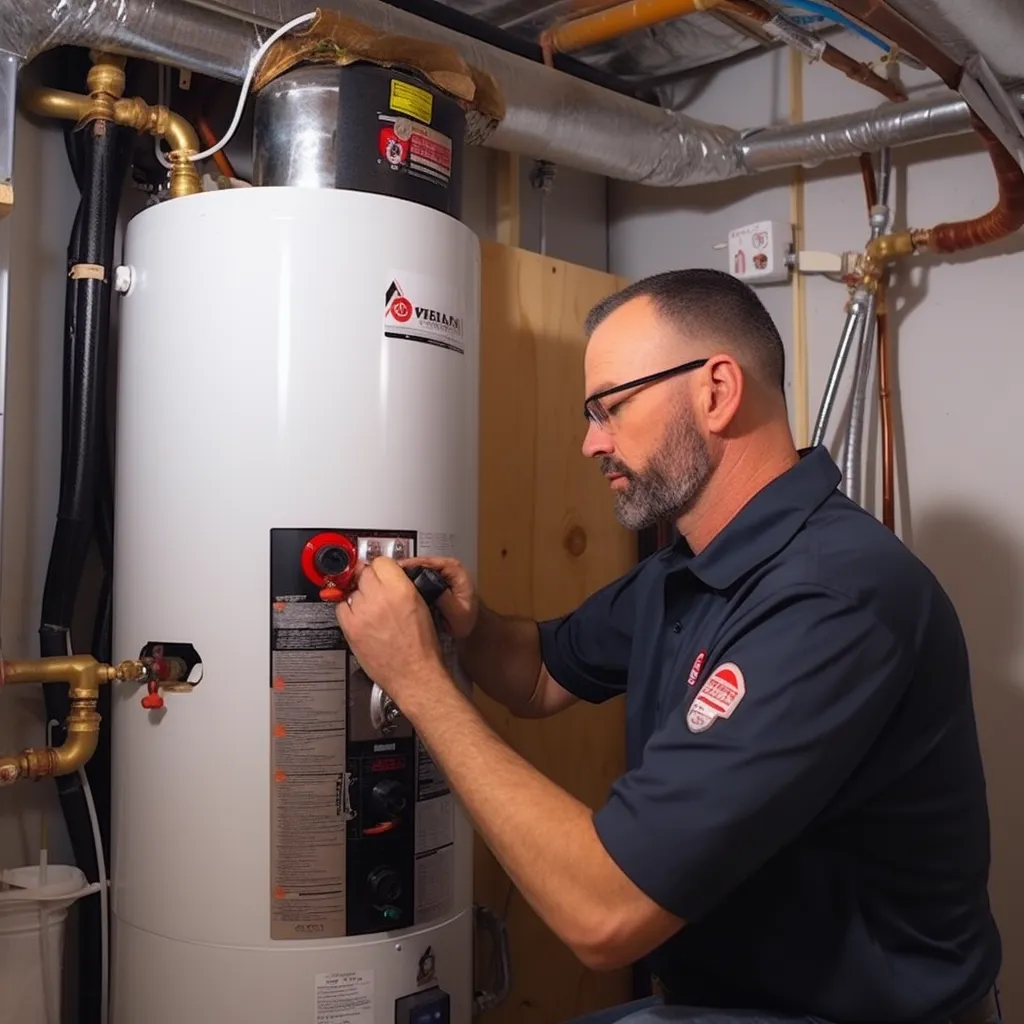
Differences between condensing vs non condensing tankless water heaters
The key difference between these condensing and non-condensing water heaters lies in how they handle combustion and heat transfer. Non-condensing tankless water heaters work by directly heating the water as it passes through the unit. These models rely on a gas burner to heat the water and require a venting system to expel the combustion gases from your home. Non-condensing tankless water heaters are generally less expensive upfront, but they tend to have lower energy efficiencies compared to condensing models. On the other hand, condensing tankless water heaters are designed to maximize energy efficiency. These units not only have a gas burner but also utilize a secondary heat exchanger to extract additional heat from the combustion gases. As a result, condensing tankless water heaters have much higher energy efficiency ratings and are better at conserving energy and lowering utility costs in the long run. Additionally, condensing tankless water heaters produce cooler exhaust gases, which allows them to use PVC or other plastic venting materials instead of metal. This makes installation more flexible and cost-effective. In summary, while non-condensing tankless water heaters may have a lower upfront cost, condensing models offer superior energy efficiency and greater long-term savings on utility bills. However, it's essential to consider your specific needs, budget, and installation requirements to choose the right type of tankless water heater for your home.

What are the benefits of a condensing tankless water heater?
A condensing tankless water heater offers several advantages over traditional tank water heaters:
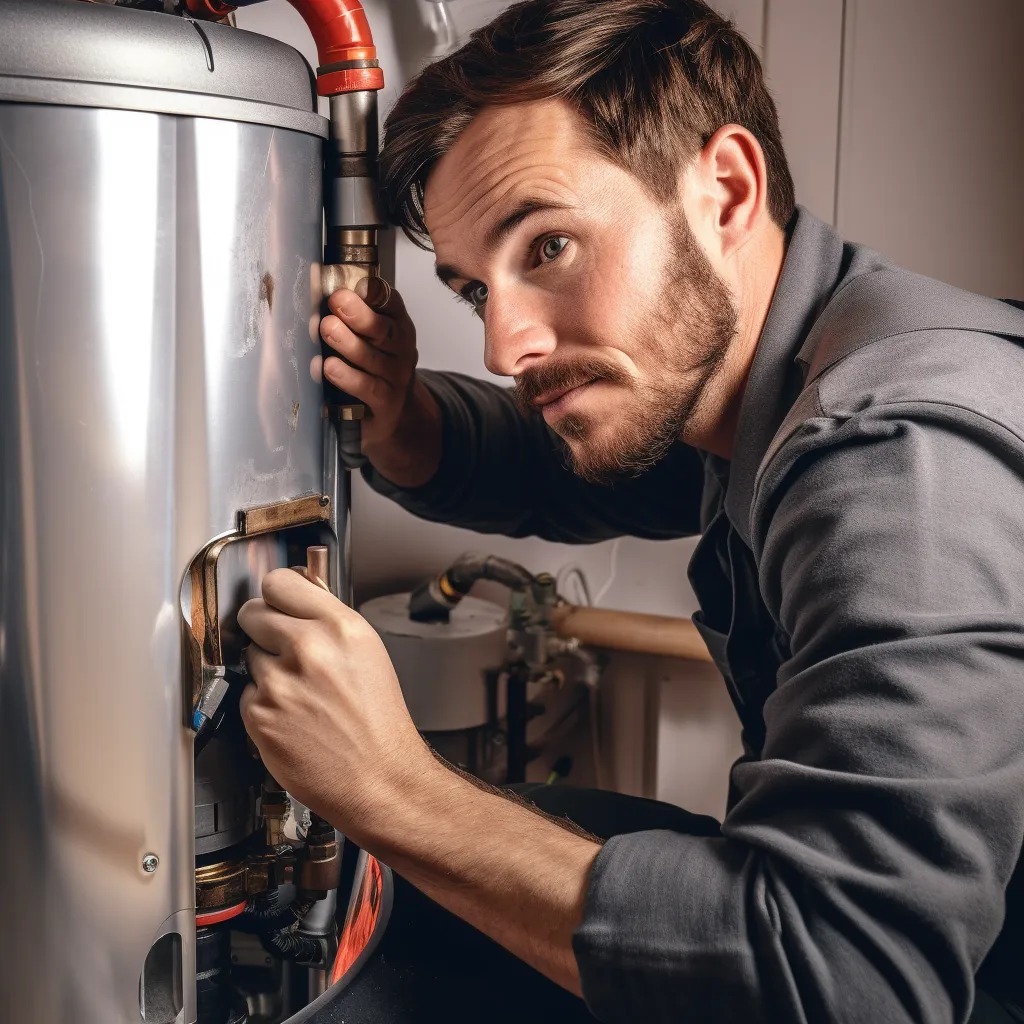
These units provide endless hot water on demand, as they heat the water as it flows through the system. This means you won't have to worry about running out of hot water, even during high-demand periods.
Condensing tankless water heaters are highly energy efficient. They utilize advanced technology to extract heat from the combustion gases, which would otherwise be lost in traditional models. This process allows them to achieve an energy efficiency rating of up to 98%, resulting in significant energy savings and lower utility bills.
Condensing tankless water heaters are environmentally friendly. As they consume less energy to heat water, they reduce greenhouse gas emissions and contribute to a greener and more sustainable living environment.
Another benefit is their compact size. Unlike bulky tank water heaters, condensing tankless models are much smaller and can be installed in tight spaces, such as closets or utility rooms. This frees up valuable floor space and provides more flexibility in terms of installation options.
Condensing tankless water heaters have a longer lifespan compared to traditional tanks. Due to their innovative design and advanced materials, they are less prone to rust, corrosion, and leaks. This means you won't have to worry about frequent repairs or the hassle of replacing the entire unit as often.
What are the downsides of a condensing tankless water heater?
Condensing tankless water heaters offer several advantages, such as energy efficiency and endless hot water supply. However, it is essential to consider the disadvantages before choosing this type of water heater replacement in Rancho Cucamonga.

Initial Cost: Condensing tankless water heaters tend to be more expensive upfront compared to traditional tankless or tank-type water heaters. The higher initial cost might deter some homeowners from opting for this type of replacement.
Complex Installation: The installation process for a condensing tankless water heater is more complicated and generally requires professional expertise. It may involve additional steps such as venting and gas line modifications, which might increase installation costs.
Maintenance Requirements: Condensing tankless water heaters have a complex design that requires regular maintenance. The system has heat exchangers, condensate drains, and other components that need periodic cleaning and maintenance to prevent potential issues.
Limited Flow Rates: Although condensing tankless water heaters provide endless hot water, they may have limited flow rates compared to traditional tankless water heaters. This means that if multiple appliances or showers are simultaneously in use, the flow rate may decrease, impacting the overall hot water experience.
Cold-Water Sandwich Effect: A common drawback of condensing tankless water heaters is the cold-water sandwich effect. This occurs when the heater turns off and then back on, causing a momentary burst of cold water before hot water resumes. While it is not a significant issue, it may cause some inconvenience.
Need for Adequate Ventilation: Since condensing tankless water heaters produce exhaust gases, proper ventilation is required to remove these gases safely. This may involve installation near an exterior wall or the use of specialized venting systems, adding to the complexity and cost of installation.

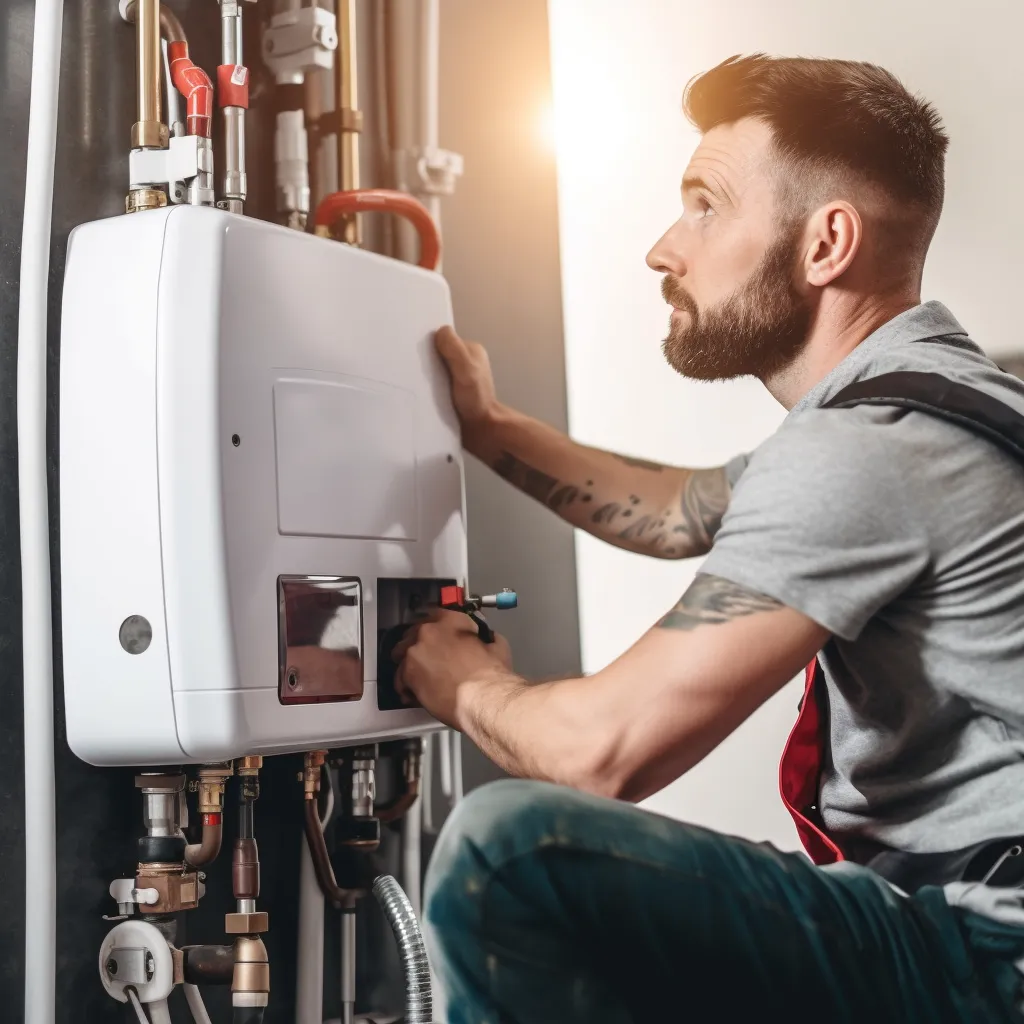
How about the energy efficiency of condensing tankless water heaters?
Condensing tankless water heaters are highly energy-efficient. Unlike traditional tank-style water heaters, condensing tankless models do not store preheated water. Instead, they heat the water directly as it passes through the unit, which eliminates the standby energy loss associated with maintaining a constant supply of hot water. Additionally, condensing tankless water heaters utilize advanced technology to extract heat from flue gases, maximizing energy efficiency. This process helps reduce energy consumption and lower utility bills. With their eco-friendly features and energy-saving capabilities, condensing tankless water heaters are an excellent choice for homeowners seeking an energy-efficient solution for their water heater upgrade.
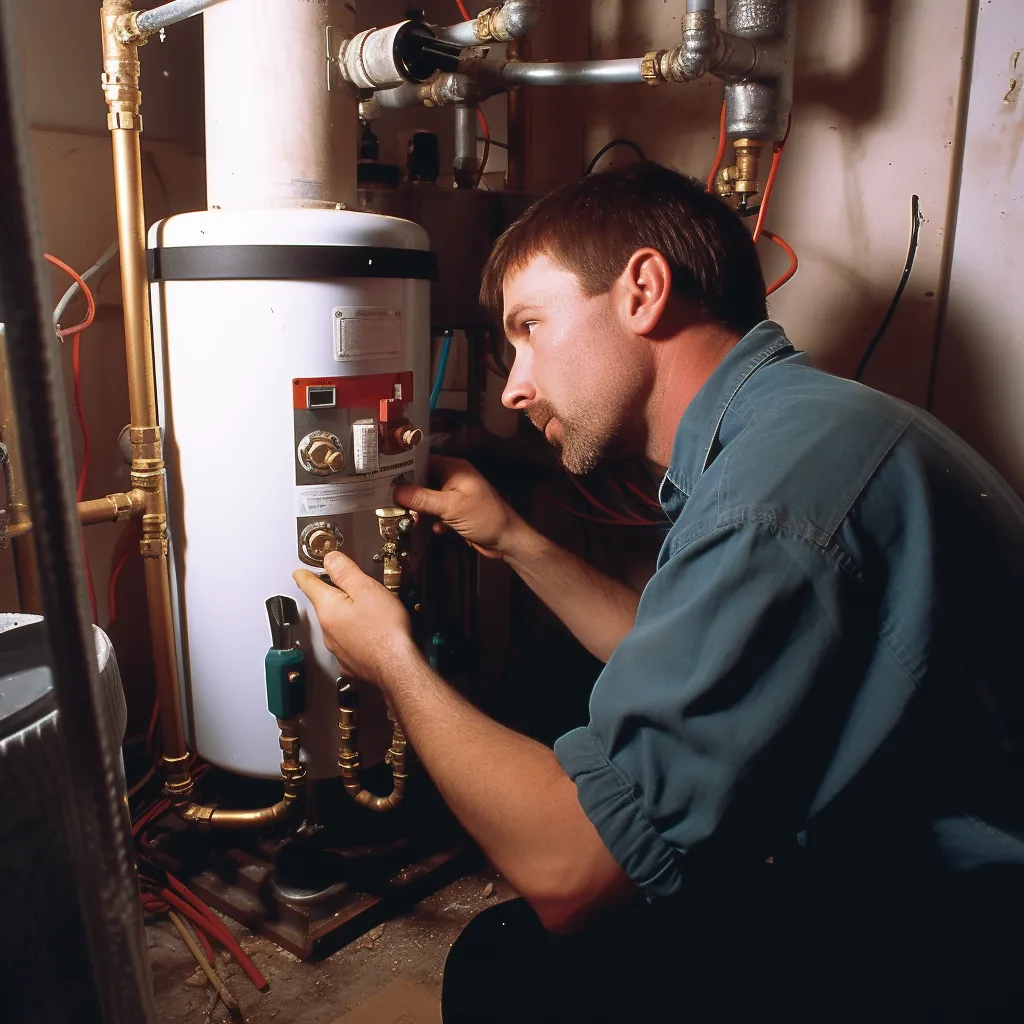
How about the energy efficiency of non condensing tankless water heaters?
Non-condensing tankless water heaters can be energy-efficient, but not to the same extent as condensing models. While they still offer energy savings compared to traditional tank water heaters, the performance of non-condensing tankless water heaters may not be as efficient. Condensing tankless water heaters are designed to capture and utilize the heat from the exhaust gases, resulting in higher energy efficiency. However, non-condensing models can still be a good choice for homeowners looking for a more energy-efficient option compared to tanks. It is advisable to consult with a professional to determine the best choice for water heater replacement in Rancho Cucamonga.
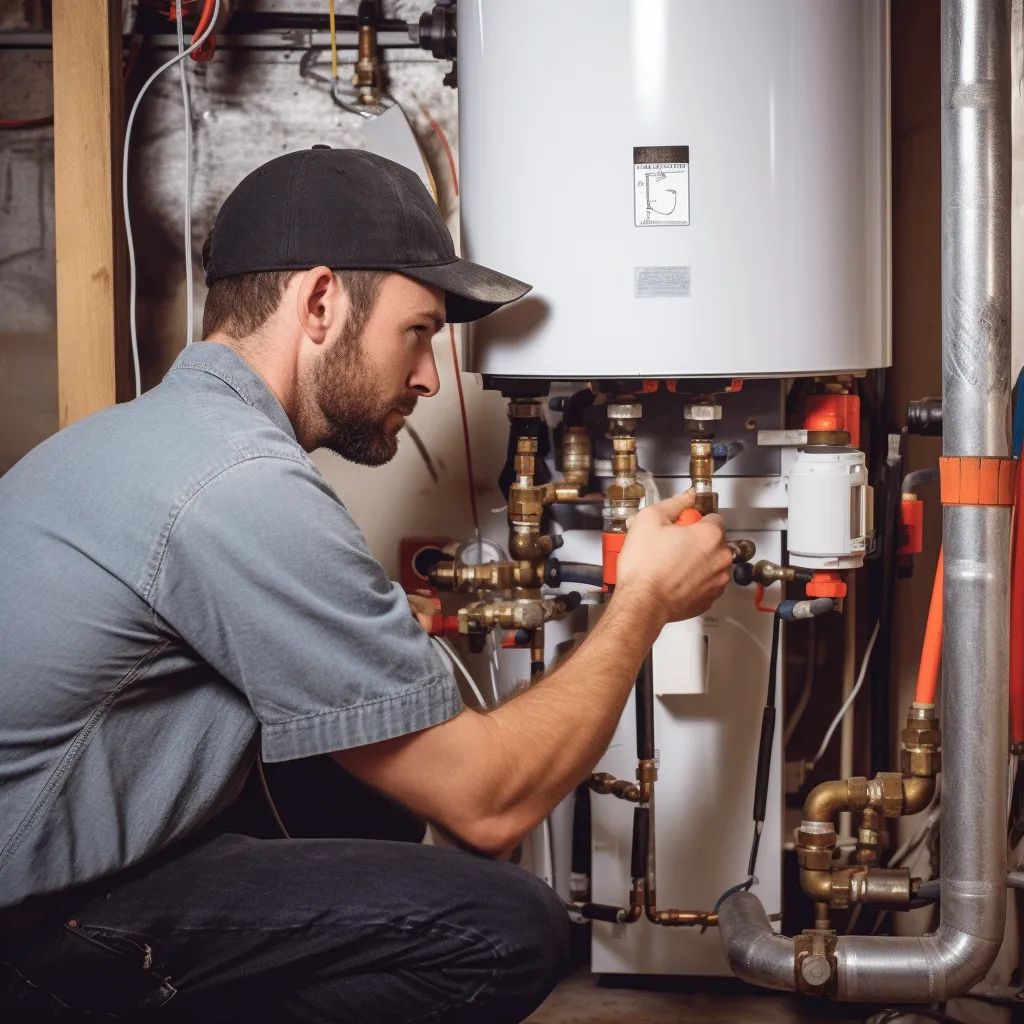
What is pricetag to buy and install a condensing tankless water heater?
When it comes to the cost of purchasing and installing a condensing tankless water heater, there are a few factors to consider. The price of the unit itself can range anywhere from $800 to $2,500 or more, depending on the brand, size, and features of the water heater. Installation costs can vary depending on the complexity of the project, the location of the installation, and any additional plumbing or electrical work required. On average, you can expect to spend anywhere from $1,500 to $3,500 for the entire purchase and installation process. It's important to note that these costs may vary depending on your specific location, so it's always best to get a quote from a professional contractor.
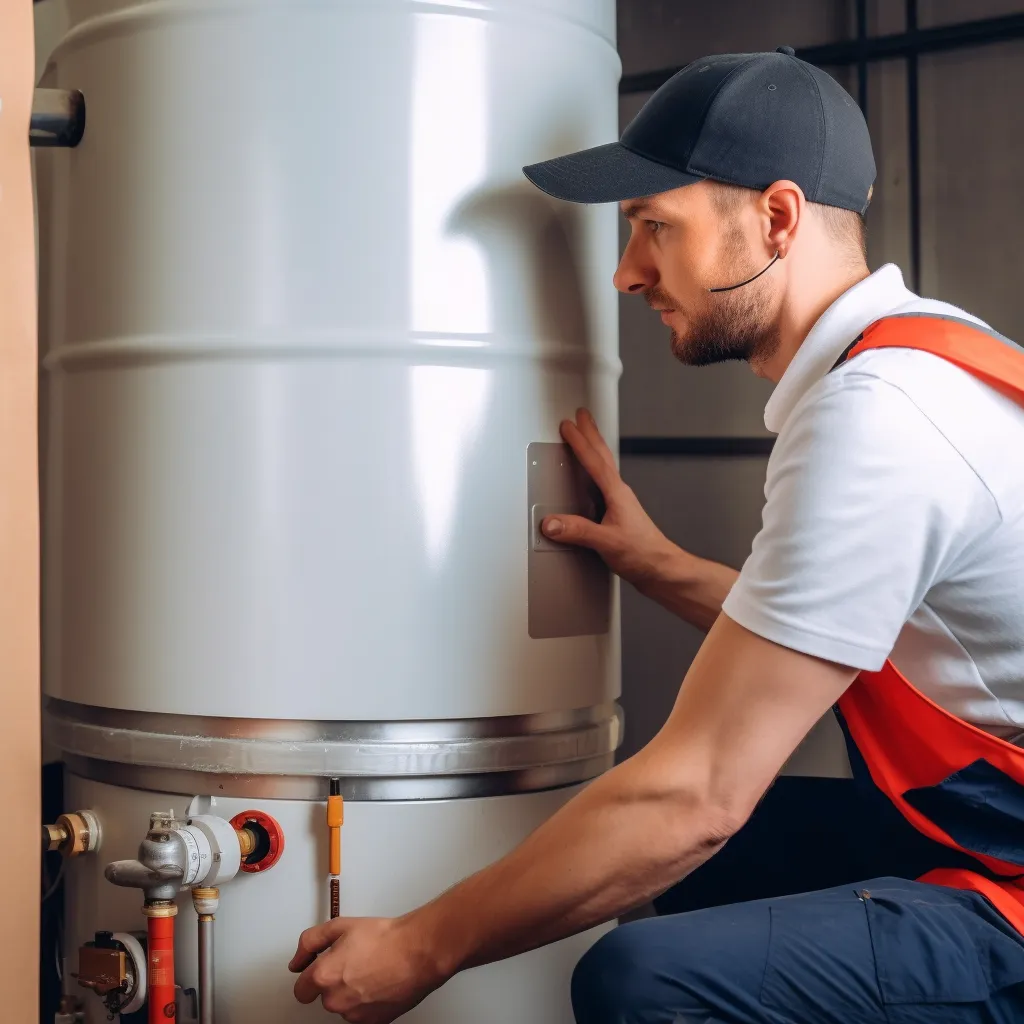
The cost to buy and install a non condensing tankless water heater?
When it comes to purchasing and installing a non-condensing tankless water heater, the cost may vary depending on a few factors. These factors include the brand and model of the water heater, as well as the complexity of the installation process. On average, you can expect to spend anywhere between $500 to $2,000 for the unit itself. However, keep in mind that this price does not generally include the cost for installation. The installation cost can range from $500 to $1,500, depending on the specific requirements of your home. It's important to note that these are just average estimates, and actual prices may vary. To get a more accurate cost estimate for a non-condensing tankless water heater purchase and installation, it is recommended to consult with a professional plumber or HVAC technician.
Maintenance requirements for condensing tankless water heaters
When it comes to maintaining condensing tankless water heaters, there are a few important requirements you need to be aware of. Regular maintenance of these units is crucial to ensure their optimal performance and longevity.

The primary maintenance task you should perform regularly is descaling the heat exchanger. Over time, mineral deposits can build up on the heat exchanger, reducing its efficiency and potentially causing damage. Descaling involves removing these deposits by flushing the unit with a descaling solution. It is recommended to follow the manufacturer's instructions for the appropriate descaling frequency.
In addition to descaling, it is essential to clean or replace the intake air filter regularly. The air filter prevents dust and debris from entering the unit and ensures proper combustion. Clogged filters can hinder the unit's performance, so keeping them clean is important. Inspecting the venting system is another necessary maintenance step.
Make sure the vent pipes are free from obstruction and secured properly. Any blockage or leak in the venting system can affect the unit's operation and pose a safety risk.
Checking the pressure relief valve is crucial for ensuring the safety of the unit. The pressure relief valve prevents excessive pressure from building up inside the water heater. It's advisable to test and reset this valve annually.
Consider having a professional technician perform a comprehensive inspection and tune-up of your condensing tankless water heater at least once a year. This will allow them to identify and address any potential issues before they turn into major problems.
By following these maintenance requirements, you can ensure that your condensing tankless water heater operates efficiently and safely, providing you with a constant supply of hot water. If you need assistance with water heater replacement in Rancho Cucamonga, it's advisable to consult a professional to ensure the job is done correctly.
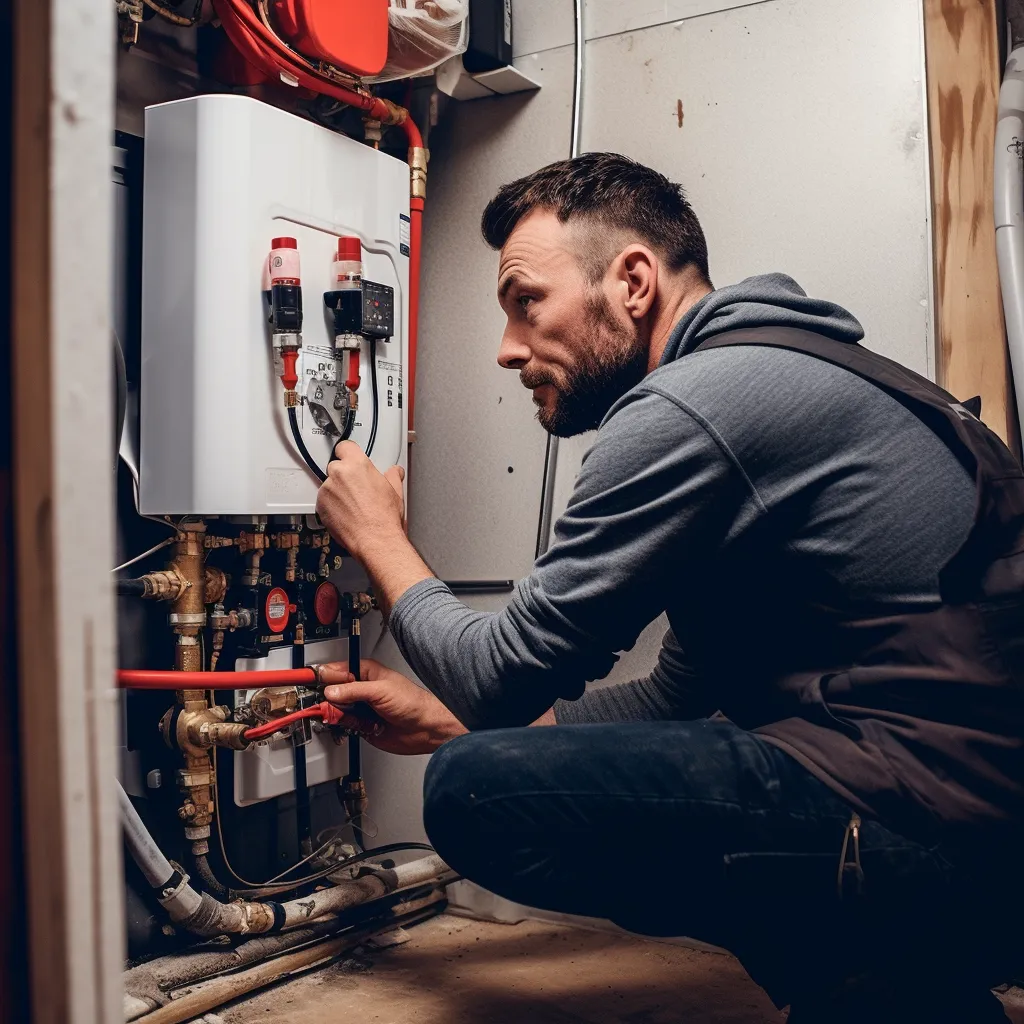
Maintenance requirements for non condensing tankless water heaters
Non condensing tankless water heaters require regular maintenance to ensure optimal performance and prolong their lifespan. Here are some key maintenance requirements to keep in mind for non condensing tankless water heaters:
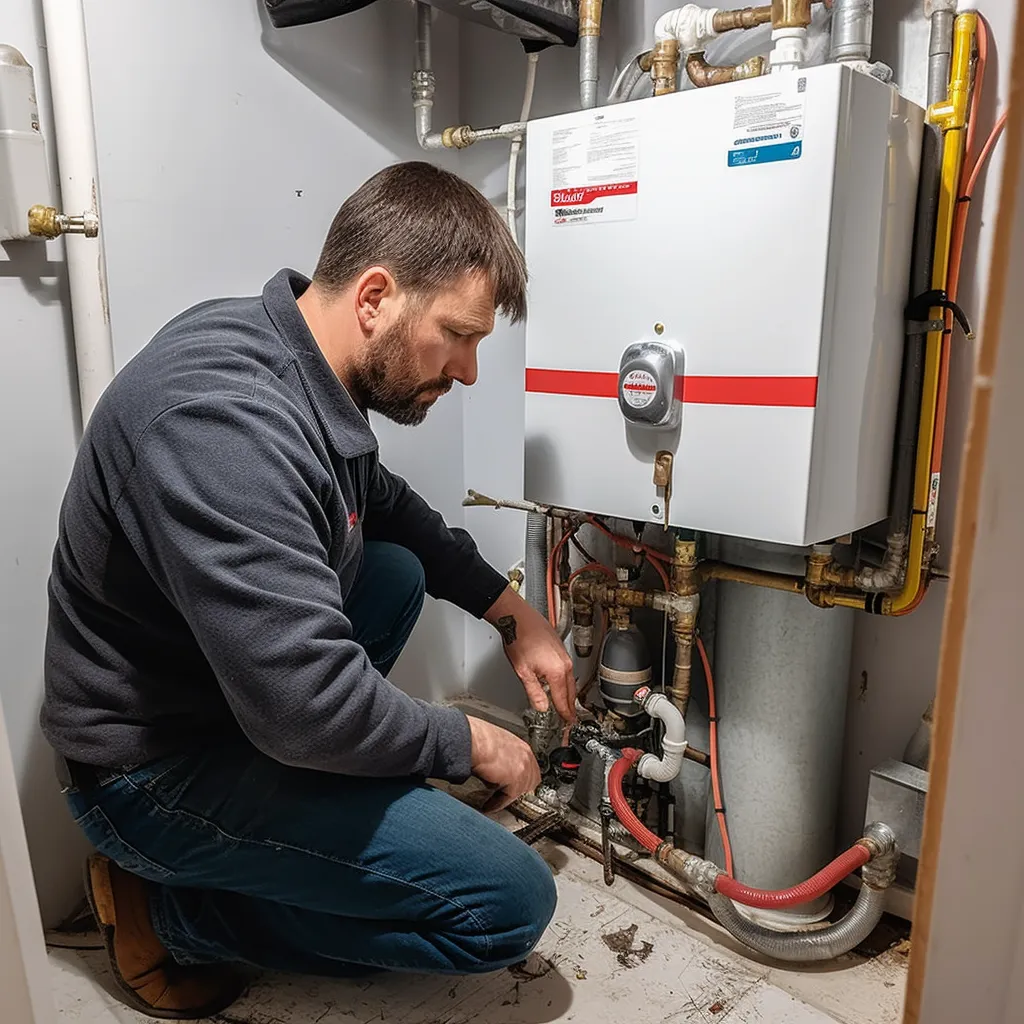
Flushing the System: It is important to flush the system at least once a year to remove any mineral deposits or debris that may have accumulated. This can be done by connecting a pump and flushing kit to the unit, allowing a descaling solution to circulate through the system and dissolve any buildup.
Monitoring the Air Intake and Exhaust: The air intake and exhaust vents should be checked regularly to ensure they are clear of any obstructions. Blockages can disrupt the combustion process and reduce the heater's efficiency.
Inspecting the Heat Exchanger: The heat exchanger should be inspected for any signs of corrosion or damage. If necessary, it should be cleaned or replaced to maintain efficient heat transfer and prevent leaks.
Checking the Ignition System: The ignition system, including the electrodes and flame sensor, should be inspected and cleaned to ensure reliable ignition. Faulty ignition can lead to poor performance and potential safety hazards.
Verifying the Gas Pressure: The gas pressure should be checked periodically to ensure it is within the manufacturer's recommended range. Proper gas pressure is essential for efficient and safe operation.
Regular Filter Cleaning or Replacement: Non condensing tankless water heaters often have filters that trap debris and sediment. These filters should be cleaned or replaced regularly to prevent blockages and maintain water flow.
How to choose between a non condensing vs condensing tankless water heater
When it comes to choosing between a non-condensing and a condensing tankless water heater for your Rancho Cucamonga water heater replacement, there are a few factors to consider.
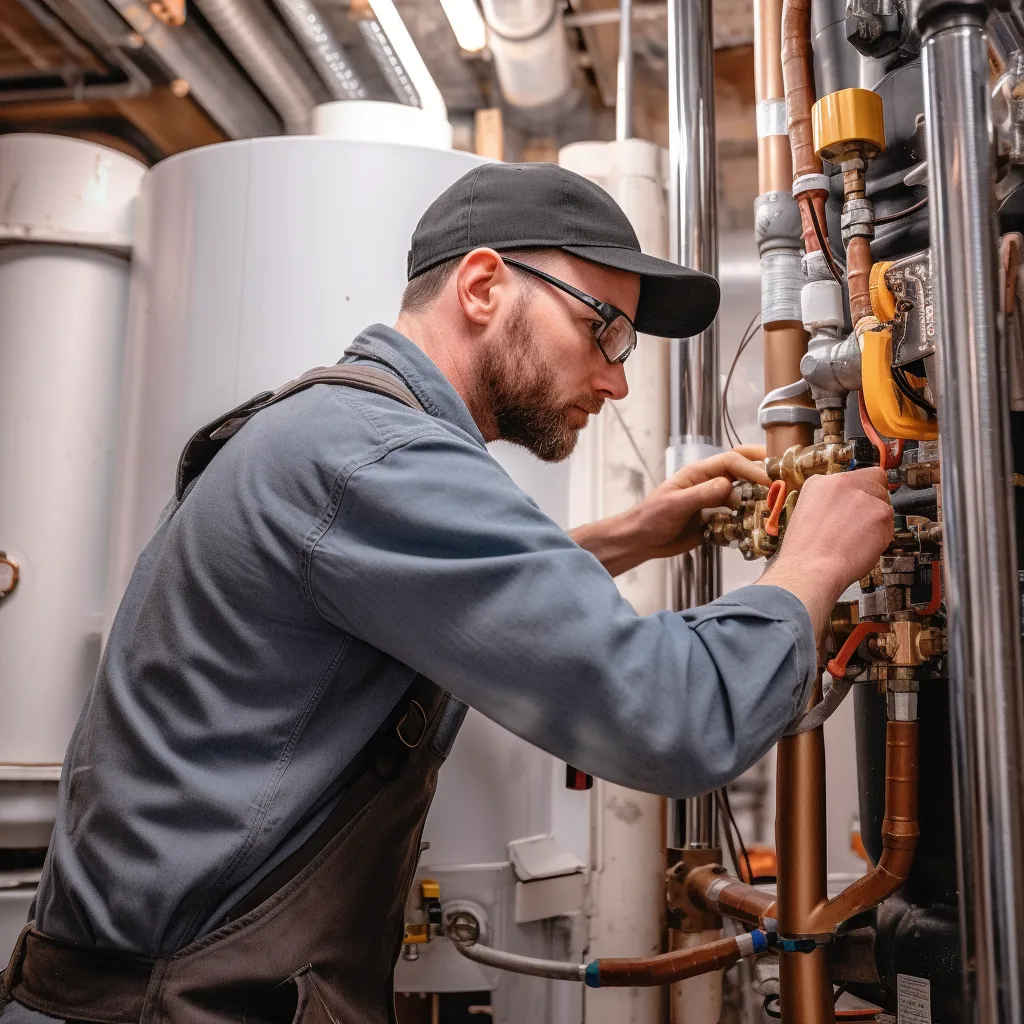
Efficiency is an important consideration. Non-condensing tankless water heaters tend to have lower efficiency ratings compared to their condensing counterparts. A condensing water heater is designed to extract heat from the flue gases, which improves its overall efficiency. This results in energy savings and reduced operating costs over time.
The venting requirements differ between the two types of water heaters. Non-condensing tankless water heaters typically require a larger vent size due to the higher temperature of the flue gases. On the other hand, condensing tankless water heaters have lower flue gas temperatures and may utilize less expensive PVC venting options.
Another aspect to bear in mind is the initial cost. Non-condensing tankless water heaters are generally less expensive to purchase and install compared to condensing models. However, the long-term energy savings of a condensing unit may offset the initial investment.
It is crucial to evaluate your specific hot water needs. Consider factors such as the size of your household, the number of bathrooms, and the peak hot water demand. Non-condensing tankless water heaters may struggle to meet high hot water demand simultaneously, while condensing units are often better equipped to handle larger volumes of hot water.
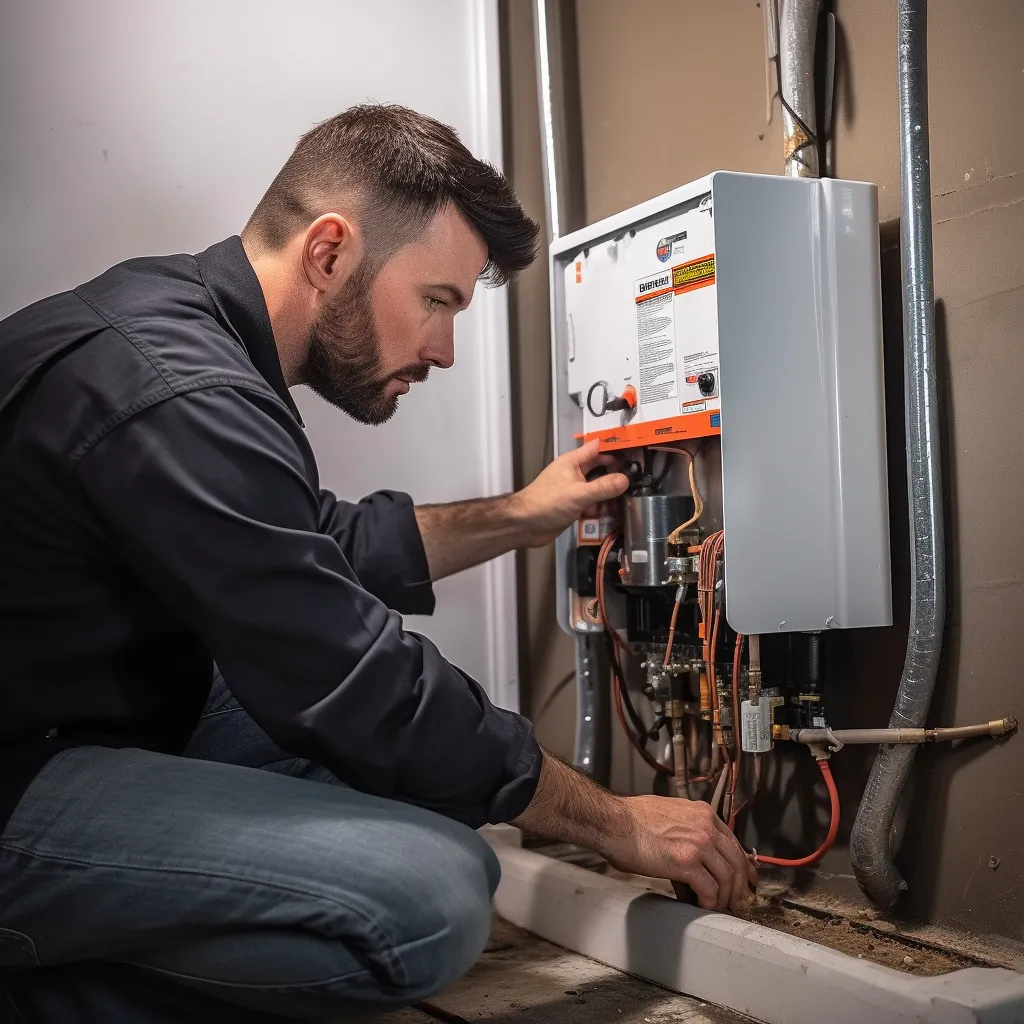
Research condensing vs non condensing tankless water heater options
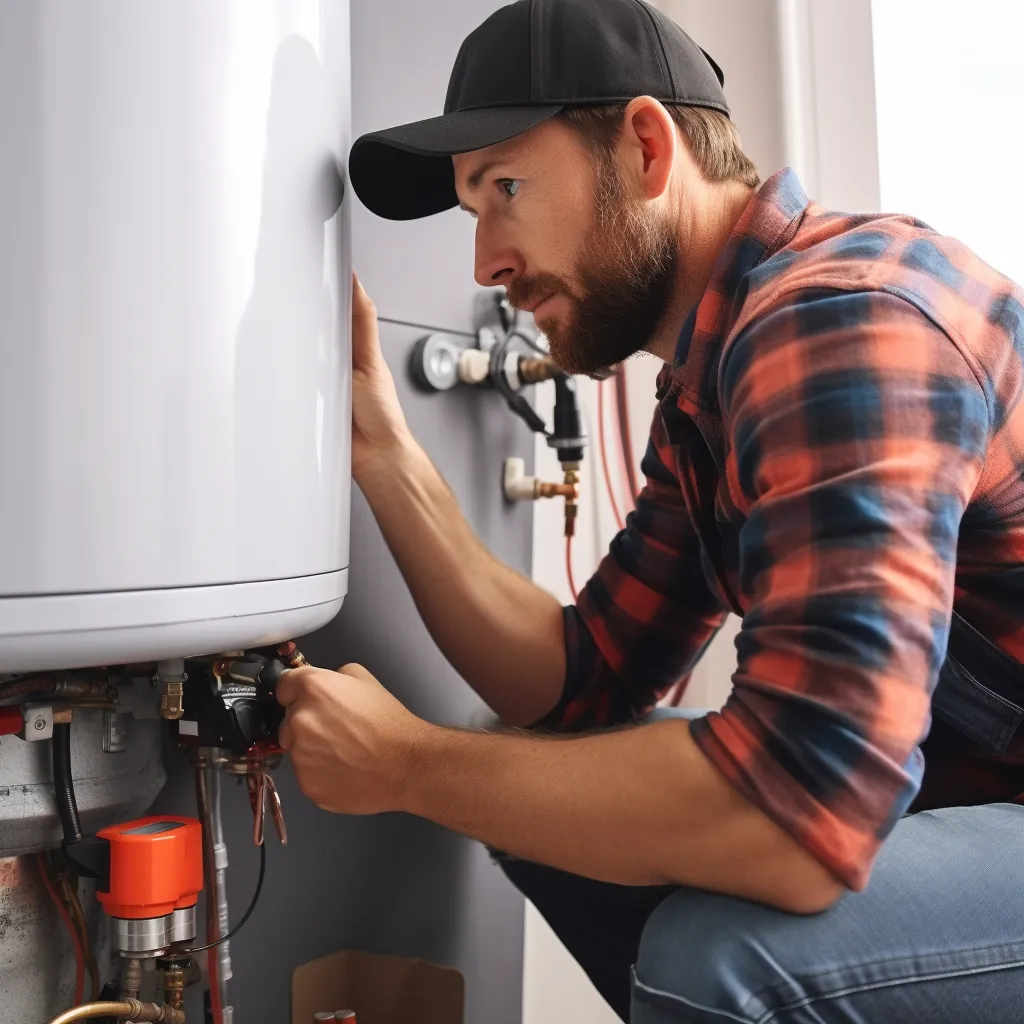
When looking for a new water heater, it's important to consider the pros and cons of different types available, especially when it comes to tankless water heaters. One crucial decision to make is whether to choose a condensing or non-condensing unit. At first glance, non-condensing options may seem more affordable, but it's essential to understand that these units can waste energy and require more maintenance. On the other hand, condensing tankless water heaters offer greater cost-effectiveness and can help lower utility bills. Taking the time to compare various options and selecting the right water heater type will ensure you have a consistent supply of hot water while enjoying energy savings. If you're looking for water heater replacement in Rancho Cucamonga, consider these factors when making your decision.
Contact Us
One of the most significant investments you can make in your home is a water heater replacement.
GET IN FULL TOUCH
PHONE: (909) 639-6526
EMAIL:
rick@waterheaterranchocucamonga.com
Rancho Cucamonga CA 91701